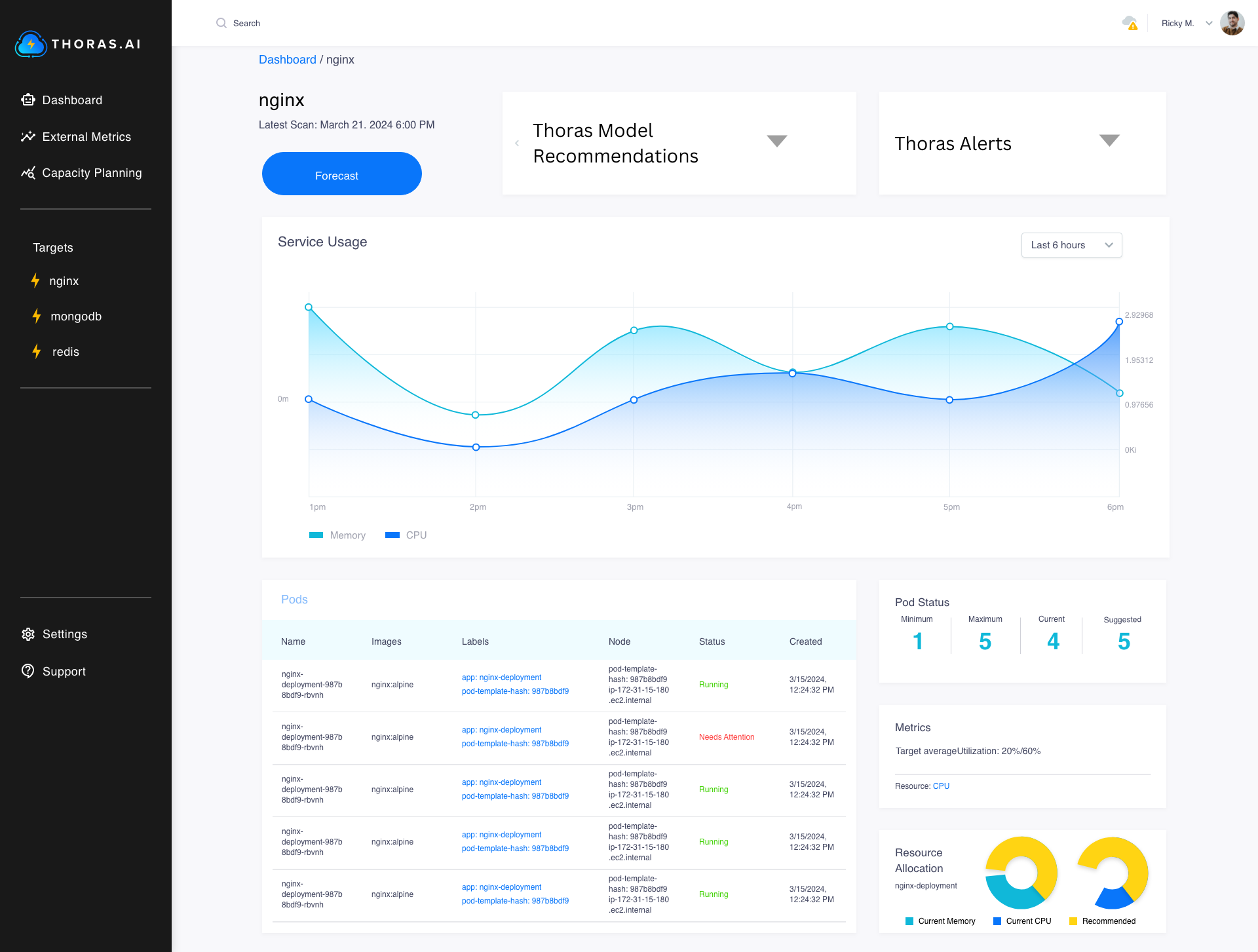
When the Soviet Union invaded Afghanistan in 1979, Thoras.AI founders Nilo Rahamani and Jennifer Rahamani weren’t even a twinkle of their dad and mom’ eyes, however their dad and mom have been compelled to flee together with their older siblings. Ultimately they ended up immigrating to the U.S. and settling in northern Virginia, the place they gave beginning to twin women, who would each develop as much as change into engineers and work for Slack and the DoD respectively, serving to implement cloud native options.
Of their earlier jobs, the Rahmani sisters acknowledged an issue with how engineers sourced Kubernetes workloads, relying an excessive amount of on instinct and never sufficient on knowledge, and having inherited a few of their dad and mom’ bravery, determined to depart their comfy jobs and launch Thoras.ai to resolve the issue.
Right this moment, the corporate introduced a $1.5 million pre-seed funding.
“Thoras primarily integrates alongside a cloud-based service and it persistently screens the utilization of that service,” firm CEO Nilo Rahmani advised TechCrunch. “So the purpose is to not solely forecast demand, however then to autonomously scale the appliance up or down in anticipation of elevated visitors or decreased visitors”. It additionally has the flexibility to inform an engineer of a efficiency difficulty with the purpose that they perceive that there’s an issue earlier than it blows up into one thing extra critical.
They launched the corporate proper after the primary of the 12 months and closed their pre-seed funding only a few weeks in the past. They’ve already launched the primary model of the product and are working in reside buyer environments and producing income, all optimistic indicators for an early stage startup like this one.
Whereas the founders didn’t need to get into an excessive amount of element about what’s taking place on the back-end, the appliance connects on to the corporate’s growth surroundings with no APIs concerned, and no info touring backwards and forwards, as safety and privateness was a key design issue for them. Builders see a dashboard with key details about the appliance’s sources, and he or she says they spent lots of time ensuring they supplied a visually interesting person expertise within the dashboard.

Picture Credit: Thoras.AI
By way of AI, the corporate presently makes use of extra task-based machine learning than generative AI and huge language fashions (LLMs). “A variety of the issues that we’re going through are systemic points, and there are lots of numbers concerned. And so conventional machine studying and AI can be utilized to forecast what consumption seems like,” she stated. That doesn’t imply they don’t foresee utilizing LLMs down the street, however for now they need to be extra proactive searching for potential issues. They see LLMs being extra helpful in troubleshooting after the actual fact sooner or later as they fill out the product.
“We positively have merchandise in our roadmap that make use of LLMs, however pure language processing is tremendous useful in a scenario the place there’s lots of phrases concerned, and proper now, we need to get to the the basis of the issue earlier than it truly happens as an alternative of simply going via logs to determine what occurred and why it occurred after the actual fact,” she stated.
They each definitely acknowledge that if their dad and mom had stayed in Afghanistan, they won’t have had the identical academic alternatives, by no means thoughts the flexibility to start out their very own enterprise. “There isn’t a day that I don’t take into consideration how privileged I’m to be in a rustic the place I can pursue my goals. I discuss that on a regular basis,” Nilo stated. Jennifer added, “It positively helps drive us to work as laborious as we are able to and succeed, I’d say.”
Right this moment’s pre-seed funding was co-led by Storytime Capital and Focal VC with participation from Hustle Fund, Precursor Ventures, the Pitch Fund and several other unnamed strategic angel traders.







